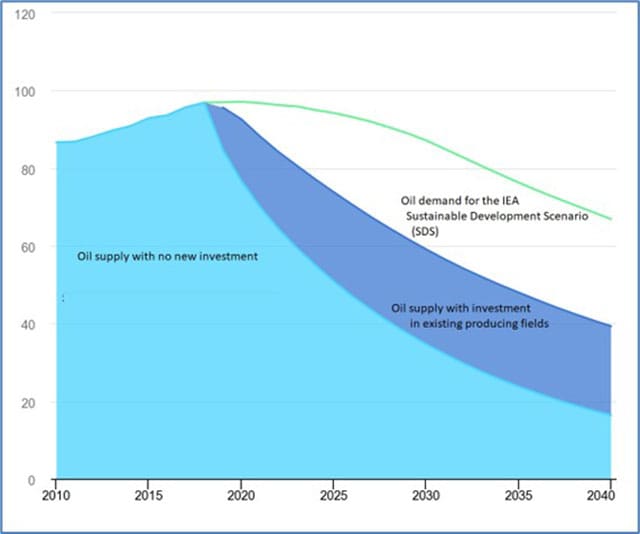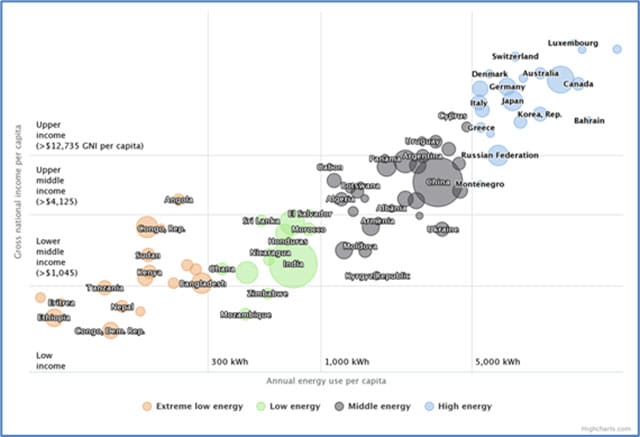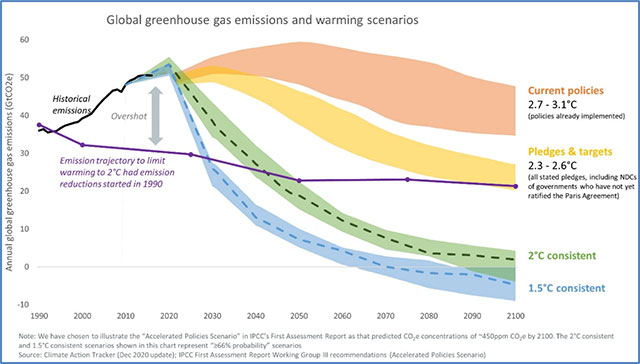Ending of the fossil fuel industry would lead to an increase in global poverty and energy insecurity
 I’m astonished by the loud demands and many protests calling for a complete shutdown of the fossil fuel industry to respond to climate change. It’s delusional to think we can magically shut down the fossil fuel industry. These protesters don’t recognize how thoroughly we’ve integrated fossil fuels and their products into our society to achieve the standard of living and the conveniences they all enjoy.
I’m astonished by the loud demands and many protests calling for a complete shutdown of the fossil fuel industry to respond to climate change. It’s delusional to think we can magically shut down the fossil fuel industry. These protesters don’t recognize how thoroughly we’ve integrated fossil fuels and their products into our society to achieve the standard of living and the conveniences they all enjoy.
Below is a summary of the significant and likely devastating implications of shutting down the fossil fuel industry. I suspect they’ll come as a surprise to the protesters. But, by changing their focus, these protesters can contribute to achieving their goal of responding to climate change.
No fossil fuel consumption equals continuing poverty
If you are protesting to shut down the fossil fuel industry, you likely don’t realize you are also subjecting billions of people to continue to live in poverty.
The chart below illustrates the direct relationship between energy consumption and income. The bottom left quadrant lists the countries with many desperately poor people wanting to escape poverty. However, they are constrained by various factors, including limited access to energy.
Rather than protest in support of a ridiculous fossil fuel industry shutdown, protesters could choose to support poverty reduction by:
- Encouraging the broader adoption of cleaner-burning stoves that reduce GHG emissions from burning wood and dung.
- Encouraging the use of more single-household solar panels.
- Supporting efforts to reduce natural gas venting and flaring to make that wasted energy available to consumers.
No fossil fuels equal energy insecurity
Protesters, environmentalists and some politicians loudly promote a rapid decline in fossil fuel production to achieve a quick energy transition, ignoring the risk of energy shortages and insecurity. However, the energy transition requires ongoing energy security to maintain citizen commitment.
The following chart illustrates the looming gap in the IEA forecast between oil demand and oil supply. This forecast is likely optimistic. Other forecasts suggest oil consumption will rise above 100,000 barrels per day and decline more gradually.
If this gap is not closed, the elapsed time to complete the energy transition will take longer as energy insecurity undermines support. That’s the opposite of what the protesters are clamouring for.

Source: Global oil demand in the Sustainable Development Scenario and decline in supply from 2019 to 2040
Rather than protest in support of a ridiculous fossil fuel industry shutdown, protesters could choose to support a more reasonable energy transition that:
- Minimizes the risk of energy insecurity.
- Keeps energy prices affordable.
- Encourages those who can use renewable energy to do so.
- Supports energy conservation.
- Addresses the change management reality.
No fossil fuels equal no energy transition
Protesters, environmentalists and some politicians loudly insist on rapidly abandoning fossil fuel production to reduce greenhouse gas emissions as quickly as possible. However, the energy transition requires enormous investments to permit and construct new mining and energy generation and distribution facilities. That takes investor confidence and construction time.
The protests against fossil fuel financing and insurance, combined with regulatory uncertainty and price controls, have created investment uncertainty that makes fossil fuel companies reluctant to increase the capital expenditures required to support a smooth energy transition.
The protesters and everyone else want to achieve the net-zero scenario on the chart below. However, the protesters don’t realize that their actions are more likely to result in the least desirable scenario as fossil fuel development investments are curtailed, energy prices remain high, and the risk of energy insecurity increases.
Rather than protest against the fossil fuel industry, protesters could choose to support investors and an achievable energy transition by:
- Encouraging investment in all forms of energy production.
- Lobbying governments to minimize energy market interference actions such as costly regulations, price controls and windfall taxes.
- Supporting the ongoing efforts of the oil and natural gas industry to reduce its environmental footprint.
- Avoiding the accumulation of more public debt for grants and subsidies.
- Precluding stranded assets of all kinds.
No petrochemicals equal death and starvation

Source: What’s Made from a Barrel of Oil? Click the image for a larger view
The protesters forget that fossil fuels are not just burned for energy. Approximately 10 percent of fossil fuels are the petrochemical input for many products that underpin our safe, comfortable lives. The chart to the left shows that these products include plastics, fertilizers, pharmaceuticals, fibre, rubber, and paint.
Rather than protest in support of a ridiculous fossil fuel industry shutdown, protesters could choose to:
- Encourage more sustainable agriculture.
- Encourage further development of the circular economy.
- Support recycling efforts.
- Support research to make packaging more biodegradable.
Contrary to what some protesters demand, a complete shutdown of the fossil fuel industry won’t respond to climate change. Quite the opposite. An attempted shutdown will cause a consumer revolt, slowing GHG emission reductions and extending the energy transition.
Yogi Schulz has over 40 years of information technology experience in various industries. Yogi works extensively in the petroleum industry. He manages projects that arise from changes in business requirements, the need to leverage technology opportunities, and mergers. His specialties include IT strategy, web strategy and project management.
For interview requests, click here.
The opinions expressed by our columnists and contributors are theirs alone and do not inherently or expressly reflect the views of our publication.
© Troy Media
Troy Media is an editorial content provider to media outlets and its own hosted community news outlets across Canada.



